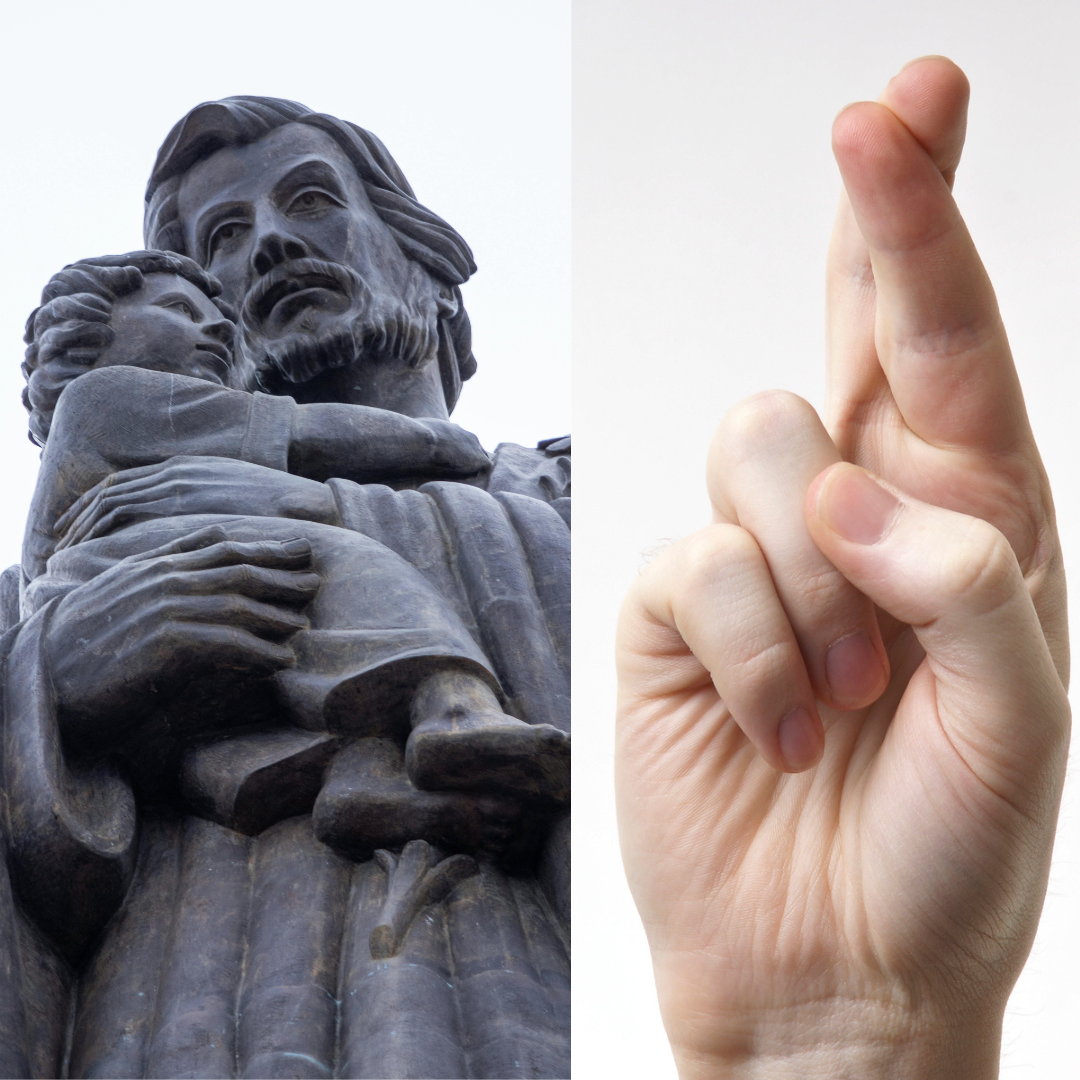In this episode of “The Catholic Talk Show,” Ryan Scheel and Ryan Dellacrosse reveal the little-known Catholic connection to some of the most common superstitions. Here’s what’s really behind these beliefs.
1) Burying Saint Joseph
Ever heard of burying a Saint Joseph statue to sell your house faster? While it might seem like a harmless plea to the patron of home and family, Scheel explains how “you're reducing Saint Joseph to a statue to ‘magically’ control the outcome.”
Instead, the guys say we should find more dignified ways to seek the saint’s intercession that the Church encourages, like praying a Novena to Saint Joseph.
2) Crossing Your Fingers
Crossing fingers is a gesture many of us might use to wish for luck, but originally, it was a way for early Christians to identify with each other and show solidarity during times of persecution.
Scheel explains how “a lot of times it would be a secret way of showing people that you are Christian because you're making a cross."
For those who couldn’t stand up to persecution, they also crossed their fingers behind their back “to still maintain that they don't believe what they're doing.”
3) Avoiding Ladders
Avoiding walking under a ladder might seem like common sense for safety reasons, but the practice actually stems from the ladder's formation of a triangle when leaned against a wall.
The triangle shape was once thought to be reminiscent of the Holy Trinity. "The belief was that by walking through or destroying anything like a triangle, it was an offense to the Trinity,” Scheel says.
The guys say that these superstitions, despite their popularity, pale in comparison to the depth and richness of Catholic teaching.
The Church wants “you to learn how to think naturally and understand concepts that you can bring into theology that illuminate it but also protect you from falling astray,” Dellacrosse says.
Catholic Teaching on Superstition
According to Catholic teaching, superstition violates the First Commandment.
"Superstition is the deviation of religious feeling and of the practices this feeling imposes. It can even affect the worship we offer the true God, e.g., when one attributes an importance in some way magical to certain practices otherwise lawful or necessary. To attribute the efficacy of prayers or of sacramental signs to their mere external performance, apart from the interior dispositions that they demand, is to fall into superstition." (CCC 2111)

